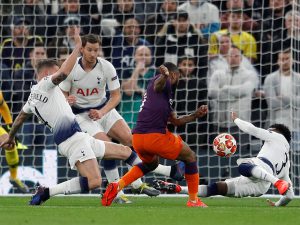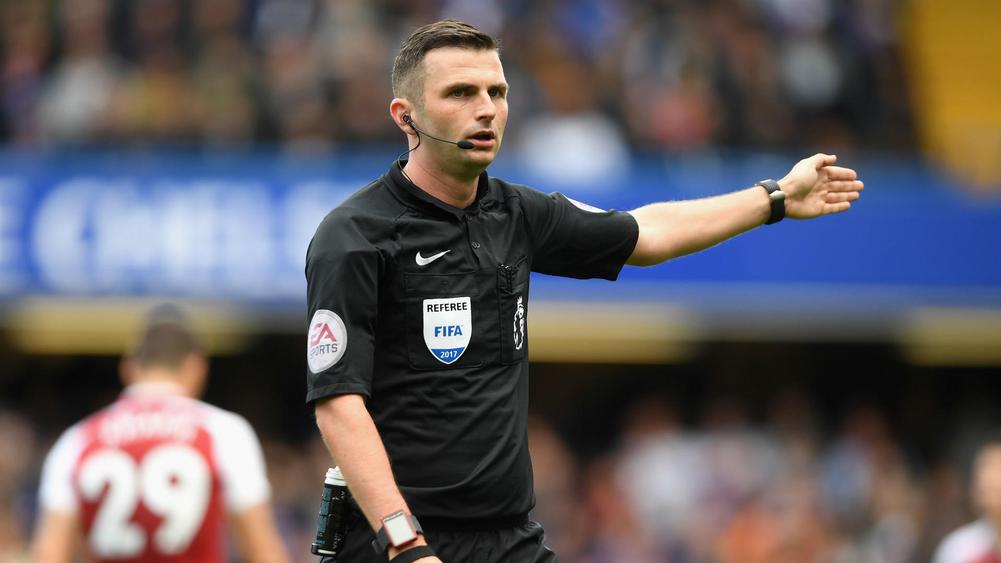Written by @SamRoyden
After yet another thrilling season in the Premier League, the continued conversation among fans, players and managers was refereeing decisions. It has been a season with immense pressure for clubs at both ends of the table. This season, we have seen more clear and obvious errors to past seasons and with the introduction of VAR (Video Assistant Referee) in 2019/20 season in the Premier League, the margin for error will hopefully become a lot less. Whether you’re a referee at Sunday league or highest in the Premier League, it’s easy to forget, through the love and passion for the sport and your club, that the match officials are as human as the footballers on the field of play and mistakes are inevitable. With VAR, this is only a positive to help the match officials get the big decisions correct.
2018/19 Season in Numbers:
- During the 2018/19 season, the number of cautioned and red cards rose by 13%, with 1,238 yellow cards and 29 red cards
- There was an increase of 67% of penalties awarded in 2018/19 vs 2017/18 season.
- Anthony Taylor was the busiest referee last season racking up 32 games with Michael Oliver and Mike Dean with 30 and 29 games respectively.
- Many will find this unsurprising, Mike Dean on average the highest amount of cautions last season at 4.62 per game and Craig Pawson issued the most amount red cards in total with 6.
New Laws of The Game Review for 2019/20 season
Each season, the IFAB (International Football Association Board) release new/amended Laws of The Game, which tend to be active from 1st June, and there are a number of changes for the 2019/20 season and I will share my top 5 and how this will impact next season:
Number 5: VAR debuts in the Premier League
Since the introduction of VAR during at the World Cup in 2018, there has been various tests of the technology including on-field decisions, communication and the effectiveness, before it was introduced into the Premier League. As we’ve seen with goal-line technology, it has been priceless and seamless inclusion to the game, however with VAR there have been some teething problems and more than not is the duration of the check and communication.
I think that the introduction of VAR is a positive step for English football, particularly with how the game is evolving. VAR is there to aid the match officials and help rectify clear and obvious errors, not completely remove the human element of refereeing. It will help all team to have a level playing field next season and if VAR was active this season, Liverpool’s goal at West Ham, Chelsea’s goal at Cardiff, Man City’s goal vs Watford would have been ruled offside and it would have been game-changing.

Number 4: Goal-Kick
From next season, players are allowed inside the 18-yard box when the defending team are taking a goal-kick. The attacking player still needs to remain outside the 18-yard box until the point the ball is played.
This is an interesting amendment to Law 16 (Goal-kick) for next season. This season, we saw that more teams are starting to press higher up the pitch and you see this more at goal-kicks and appears to be a tactic that the coaching teams at clubs are undertaking. As you know, previously the ball has to leave the 18-yard box before either player can touch the ball, neither players are allowed to encroach the 18-yard box. The new amendment is to stop time wasting from the defending team and allow a more dynamic and constructive restart
Number 3: Penalty Kicks
Goalkeeping is an art-form and the element of getting into the players minds before a penalty is a common scenario you see between them and the penalty taker. We’ve seen during many of penalty situations the goalkeepers are jumping on their goal line, pounding the crossbar with their fists – just to get the edge. From next season, the goalkeeper has to remain on the goal line and is unable to jump around, touching the crossbar, posts or nets – they must remain unmoved.
There is no justification in the laws for this amendment. The penalty would have been awarded to the attacking team as they would have been in a promising goal scoring position before a foul taking place. I think this has been introduced, on the basis above, to give the attacking team a fairer opportunity from a goal scoring position
Number 2: Free-Kicks
There have been some wonderful free-kick routines in the past, one of the greatest feelings is to see one of your players hit a free-kick straight into the top bin. I was there at Upton Park when Payet smashed that unbelievable free-kick vs Palace and the scenes were unbelievable. Defending teams have also been creative with this set-piece, this season we’ve seen defending players laying on the ground behind the wall so the attacking player can’t strike the ball underneath the wall when the defending team jumps. From next season, if a wall has more than 3 defending players, no attacking players are allowed within the wall and have to be 1 metre away.
With attacking players in the wall, it is a huge management issue for referees. Along with the goalkeeper unable to move for penalty kicks, I think in the spirit of the game for all parties as it will benefit all free-kicks particular where there is a goal scoring opportunity
Number 1: Handball
In my personal opinion, handball has always been a grey area and the biggest subject for debate among fans and players. What is handball, when isn’t it handball, does it need to be deliberate. This season has justified the new amendment to the law for handball with the amount of handball fouls, most notably Javier Hernandez goal vs Fulham. Even among European referees, handball is deemed to be interrupted differently, like Manchester United’s added time penalty vs PSG and Danny Rose’s handball vs Manchester City. I’ve always deemed it handball when the player has deliberately played the ball with his arm/hand, keep it simple.

However, the amendment to the handball law how states that ‘accidental’ handball will now be punished for the following:
- The ball goes into the goal after touching an attacking players hand/arm
- A player gains control/possession of the ball after it has touches their hand/arm and then scores, or creates a goal-scoring opportunity
- The ball touches a players hand/arm which has made their body unnaturally bigger
- The ball touches a player’s hand/arm when it is above their shoulder (unless the player has deliberately played the ball which then touches their hand/arm)
If you get this immediately, I’ll take my hat off to you. Implementing these new changes will take some time, it’s a complete change to what referees have known and executed for many of years. All I would say is that if your arm is unnatural, your arm is extended or above your head, expect to be penalised if the ball has struck your arm. Like the Danny Rose penalty, if we see defenders hurling their body in front of the ball – the player will be penalised if his arms are above his body, the ball is goal bound and hits their arm.
I must stress that in situations where the ball touches the hand/arm directly from their own head/body/foot, it’s close to their body, the player is falling and accidently touches the ball whilst trying to support their body and if the goalkeeper attempts to clear the fall and the clearance fails and collects the ball aren’t going to be penalised. I believe that the amendments are a good step as it’s unfair for any attacking team to score with their hand, whether accidental or not and unnaturally making your body by having your hand/arm above your shoulder, your stopping a genuine attempt on goal.
Next season, it will be interesting to see how referees implement this new amendment, with the assistance of VAR, but I truly believe that this is a positive step forward



